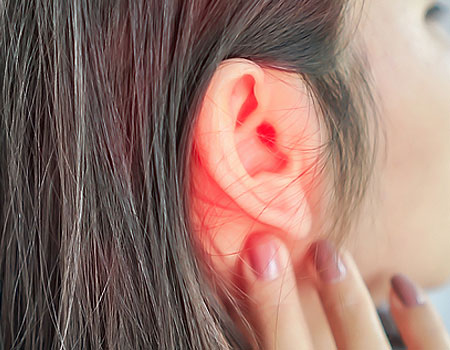 Ear diseases can affect various parts of the ear, including the outer ear (external auditory canal and pinna), middle ear (tympanic membrane and ossicles), and inner ear (cochlea and vestibular system). Treatment for ear diseases depends on the specific condition and its underlying cause. Here are some common ear diseases and their treatments:
Ear diseases can affect various parts of the ear, including the outer ear (external auditory canal and pinna), middle ear (tympanic membrane and ossicles), and inner ear (cochlea and vestibular system). Treatment for ear diseases depends on the specific condition and its underlying cause. Here are some common ear diseases and their treatments:
1. Otitis Media (Middle Ear Infection):
- Antibiotics: If the infection is bacterial, antibiotics are typically prescribed.
- Pain Relief Medications: Over-the-counter pain relievers like acetaminophen or ibuprofen can help alleviate ear pain.
- Ear Drops: Prescription or over-the-counter ear drops may be recommended to relieve pain and reduce inflammation.
- Warm Compress: Applying a warm compress to the affected ear can help soothe discomfort.
2. Otitis Externa (Swimmer's Ear):
- Antibiotic Ear Drops: Prescription antibiotic ear drops are often used to treat bacterial infections of the outer ear.
- Corticosteroid Ear Drops: These may be prescribed to reduce inflammation and swelling.
- Acidifying Agents: Acidifying ear drops may help create an environment in the ear canal that is less favorable for bacterial growth.
3. Earwax (Cerumen) Blockage:
- Ear Irrigation: Flushing the ear canal with warm water or saline solution can help remove excess earwax.
- Ear Drops: Over-the-counter ear drops containing hydrogen peroxide, mineral oil, or glycerin can help soften earwax for easier removal.
- Manual Removal: In some cases, a healthcare provider may manually remove impacted earwax using specialized instruments.
4. Tinnitus:
- Treatment of Underlying Causes: If tinnitus is caused by an underlying condition such as hearing loss, hypertension, or medication side effects, treating the underlying cause may help alleviate symptoms.
- Sound Therapy: Background noise or white noise machines can help mask the ringing or buzzing sounds of tinnitus.
- Counseling: Counseling or therapy may be helpful for individuals experiencing distress or anxiety due to tinnitus.
5. Meniere's Disease:
- Dietary Changes: Limiting salt intake and avoiding caffeine and alcohol may help reduce symptoms.
- Medications: Diuretics, antihistamines, and anti-nausea medications may be prescribed to manage symptoms.
- Vestibular Rehabilitation: Exercises to improve balance and reduce dizziness may be recommended.
- Surgery: In severe cases that do not respond to other treatments, surgical procedures such as endolymphatic sac decompression or vestibular nerve section may be considered.
6. Acoustic Neuroma:
- Observation: Small, slow-growing tumors may be monitored over time with regular imaging studies.
- Surgery: Surgical removal of the tumor may be recommended for larger or symptomatic acoustic neuromas.
- Radiation Therapy: Stereotactic radiosurgery or other forms of radiation therapy may be used to treat acoustic neuromas in some cases.
It's important to consult with a healthcare provider for an accurate diagnosis and appropriate treatment plan if you experience any ear-related symptoms. Avoid attempting to treat ear diseases on your own without professional guidance, as improper treatment can lead to complications or worsening of symptoms.

 Ear diseases can affect various parts of the ear, including the outer ear (external auditory canal and pinna), middle ear (tympanic membrane and ossicles), and inner ear (cochlea and vestibular system). Treatment for ear diseases depends on the specific condition and its underlying cause. Here are some common ear diseases and their treatments:
Ear diseases can affect various parts of the ear, including the outer ear (external auditory canal and pinna), middle ear (tympanic membrane and ossicles), and inner ear (cochlea and vestibular system). Treatment for ear diseases depends on the specific condition and its underlying cause. Here are some common ear diseases and their treatments: